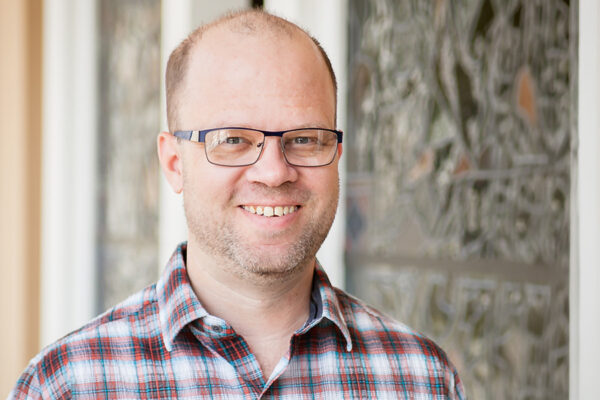Offering Relief to Others After Natural Disasters
St. Paul Lutheran Church, Lake Charles, La.
On Aug. 27, 2020, St. Paul Lutheran Church in Lake Charles, La., was struck by Hurricane Laura. The damage to their building was immense. Their sanctuary was fully destroyed and the damage to their Fellowship Hall was substantial, however, remains intact. Recovery efforts from the hurricane took place and their Fellowship Hall served as a location of support in the initial weeks following the hurricane as they collected supplies for those who had been impacted.
Unfortunately, St. Paul endured additional damage from Hurricane Delta just six weeks later. While less structural damage occurred, all of the contents of the sanctuary were destroyed including stained glass, pews, pulpit, and all musical instruments. As of early January, St. Paul was still assessing damages and had yet to determine whether their sanctuary could be repaired or would require demolition and rebuilding. All services were suspended until late January.
“In five months, not a brick nor stick has been moved from that pile of rubble,” Pastor Tim Norris said. “And we’re not the only ones. That’s the second part of a natural disaster. Once the adrenaline wears off from the initial response, it’s a slow grind.”
A small committee from St. Paul in Lake Charles reached out to fellow St. Paul namesake churches and Evangelical Lutheran Church in America (ELCA) members for support through prayer and/or financial aid. While St. Paul is a small congregation, they are the only ELCA congregation in southwest Louisiana. Our mission board provided financial support to assist in their recovery and rebuilding.
“One thing that has helped is the responses of churches like you all,” Pastor Norris noted. “Our people were awed with the support our small congregation has received from other churches across the ELCA. Those donations have allowed us to start dreaming. They allowed us to pay off the mortgage on the building as we face a large deductible.”
Pastor Norris said other St. Paul and ELCA churches also stepped up to help their plight for recovery. The outpouring of support reminded them of the connection and the nature of the church.
“We’re not just individual congregations — we’re partners in ministry across the nation.”
Built in 1975, St. Paul was first damaged in Hurricane Rita 15 years ago but the damage was less substantial. He said it takes years for the entire community to rebuild and it’s a struggle to maintain mental health during the rebuilding.
Pastor Norris noted the timeline for rebuilding will be long. He said they would be lucky to have a usable sanctuary in three years’ time, but for the moment, they are blessed to gather together in their Fellowship Hall.
Catherine McAuley Center, Cedar Rapids, Iowa
The Quad Cities and many surrounding communities were hit hard by the derecho that tore through the Midwest in early August. Many were without power for days and even weeks as local crews worked to fix power lines and remove debris from streets. Pictures kept surfacing of the damage done to homes, apartment buildings, and businesses. One area that received the most damage was Cedar Rapids, Iowa, with peak wind gusts measured at 140 mph.
The Catherine McAuley Center (CMC) was just one of the many organizations to receive damage from the August derecho. Having just moved into their new location one month prior, the new building sustained significant roof and water damage.
CMC works to serve the needs of distinct populations in Cedar Rapids and surrounding areas including immigrants, refugees, and women experiencing crisis. CMC’s widespread programming includes a Transition Housing Program located in the damaged CMC building. Following the derecho, many of these populations found themselves without housing or needed resources, leading to a severe homelessness crisis.
CMC got creative and moved about 60 refugee and immigrant families who found themselves displaced. They turned their former building into a temporary shelter with 24 privates rooms and two shared kitchens. By the end of October, CMC was successful in helping all of these families move into their new homes. In addition, the temporary shelter became online learning classrooms for students without access to the internet as Cedar Rapids schools were going online for the year.
St. Paul Mission Board members had a distant connection with CMC and were aware of the incredible programming and access being given to these distinct populations. When the mission board reviewed their budget, they realized they had additional resources to provide. CMC received $2,000 from St. Paul to help with derecho recovery efforts.
“We wanted to keep our support local,” Pastor Katy Warren said. “We had a familiarity with the McAuley Center through members of our mission board. Cedar Rapids had the greatest need so we chose to support this organization who we know has done great work.”
The Center’s website states it was founded in 1989 by the Sisters of Mercy and the Cedar Rapids community. Named for the founder of the Sisters of Mercy, the Center has grown from serving 15 people in its first year to serving approximately 500 people annually today.




